Wednesday, January 09, 2019
Straws and Camels
I remember when they suffered illness, and when others became heartsick. Puffy eyes, gray pallor, restraint and a need to back away from or even avoid "extras" were quietly noted and the rest of us sympathized, discreetly offered help, and volunteered to take on some of their load, knowing full well that we'd benefit from reciprocity when it was our turn...when life happened...when we were the most human. To care for colleagues, to see them through, was professional. I found myself the newest member of a teaching family united in purpose, bonded over responsibilities, and when needed, ready to step up to help another through the rough patches. No one was left by the wayside, no one mourned alone, and it wasn't considered a sign of purposeful antagonism when questions were asked, pedagogy evolved, and new resources came and went... and came again. The meetings weren't always fun and the arguments could become impassioned; colleagues could make asses out of themselves; apologies were offered; forgiveness was given. We learned one another's boundaries, strengths, limits and humor.
And we respected them.
Enter NCLB (the Age of Teacher Blame) followed by the Sell-Your-Brand-to-the-Consumer Era, and a collateral gap has emerged between the young bucks and their veteran mentors. Peppy and eager to implement this generation's peddled cure-alls, newbies have found themselves partnered with colleagues whose pedagogy reflects a much less manic pace and reluctance to toss the baby out with the bathwater. I remember when shame wasn't associated with this difference. More and more, today's teachers are burnt out in mere years, instead of burning out after decades. It's been almost a year since I've blogged here at Kindergarten's 3 R's, so you might wonder if this post is me hinting around that I'm toying with the idea of running away to join the circus. Clowns give me the creeps, so that's a big NO. Since:
... here's the short version of what's been going on since last February: I taught. Continued grad school. Was busy with family and, time permitting, friends. I explored other social media. Then a DVT was found in my leg followed by three pulmonary emboli in my chest requiring that my summer vacation be spent healing and learning how to not only handle blood thinners but the accompanying worry, stress, and fear that came along for the ride. Life happened, as it does.
The new school year started and I was blessed to be able to greet my newest group of students who were unaware of the changes I was experiencing. My colleagues allowed for the jumble of emotions that were spilling out from me and asked how they could help. I became better at saying "no" when necessary (something so hard for teachers to do) and for whatever reason assumed that the freight train of public education would slow down a bit to accommodate for the adjusted amount of self-care I found necessary. This has been my first long-term moment of need where a sabbatical would be much too long of a pause... and I'm nowhere near considering retirement. I can also still effectively teach kindergarten students the skills that they need and from which they'll benefit most (and I love to do it)... as long as I don't have to recreate the wheel mid-year after spending months establishing the routine that my students and I both need, because *that* dear reader, is the straw threatening to bruise this camel's back.
I'm not the only one. This afternoon I looked out across a sea of my colleague's faces after it was proposed that we attempt to implement another new modification to the instructional rhythm that we planned and set as our year's pace. Among the tired were those who were intrigued, along with a few who wore expressions of confusion as they tried imagining how this newest change might affect their jam-packed plan that already barely allows for needed flexibility and breathing room. And then there were some who appeared authentically haggard and disheveled, making me furrow my brow with concern as I realized I hadn't really touched base with them since the frenzied start of our second semester. Their faces didn't illustrate a desire to deprive students, to slack on the job, or to naysay, scoff at or rebut the suggested modification. None were aspiring to be Debbie Downers either. Their expressions simply pleaded "please, no."
From time to time, some teachers' incentives and intentions are other teachers' camels and straws.
Teachers know that every school year benefits from some rah-rah, and every successful plan requires support and a commitment. But educators deserve acknowledgment when they've reached their limit too, and it's that accommodation, that consideration, which is rarely if ever provided by a canned program or scripted regimen that dictates hoops to be jumped through in order to attain some status valued by consumers of not a product, but a brand. "Back when I started teaching," curricula and programs were test-piloted by a few teachers with the understanding that an extensive debrief was expected before full-scale adoption would be considered. This system worked because it enabled the teachers who were most interested and most able to not only explore new resources but to better guide their colleagues as educational needs were identified. Teachers were recognized as whole people with full lives: those with young children could miss more work as their kids shared germs while singles had more time and the freedom to travel hither and yon to conferences, sharing everything they learned upon their return. Educators motivated to guide the next generation of teachers could regularly host and mentor practicum students while their colleagues next door could build collaborative programs with local businesses or cultural resources to benefit multiple schools. A grade-level colleague could ask another to share a contract for a year in order to spend more time at home to care for a sick parent, while another could fully mentor a new-to-service teacher before, during and after school daily. All of these essentials could happen "back in the day" without resentment or shaming because it was understood that the human conditions of both students and teachers contributed to the successes and failures of school.
I too, feel a bit like how some of my incredible colleagues looked this afternoon. Please. Not one more thing. I have enough. I am doing enough. I'm not failing my students and I'm not refusing to be a team player. I will jump rail cars and tracks when I am again able. But not today. Not this week.
Uncle.
Monday, March 28, 2016
Freshening Up the Blog for Spring
It didn't happen.
Oh, goodness no, it didn't happen.
I had the school yearbook to finish. I had laundry to do. LOADS of laundry.
I had to sleep.
You understand.
Now it's the day after Easter, and the links in my blogroll haven't even been checked yet (they change every so often, making an unchecked, non-updated blogroll useless), HOWEVER...
Thanks to a fabulous colleague, I DO have a new blog header! (~scroll back up, take a peek~)
It's simply sweet, straightforward, and feels fresh.
Thank you, Doti!
You can find her on Etsy and on Instagram (check out her cute spring lettering art!)

~Happy Spring!~
(... and I'll find time this weekend to update the blogroll. Maybe.)
Thursday, September 11, 2008
Freedom...to Blog...to Read Blogs...to Avoid Blogs
Blogging for almost two years now, I’ve read with great interest those posts by favorite authors (bloggers, whichever you prefer) that pop up from time to time regarding anonymity, confidentiality, off-limit topics, etc. I’ve found it interesting that bloggers of all makes and models, be they crafters, artists, teachers, poets, home decor gurus or chefs, have had to deal with clarifying their blogs' focus and intentions, and in some cases, have either had to publicly defend their blogs' value and validity at the risk of losing their employment or customer base, or stop blogging all together because bosses didn't like what was being put out there.

Several of my favorite educational bloggers write anonymously. Some blog sites include disclaimers such as “this blog reflects my own personal opinions and not necessarily those of my colleagues or employer,” while other authors avoid identifying their schools, school districts, state or locale in any way, shape or form. Some friends and blogging colleagues with whom I write identify themselves and their locales on their blog sites, and have received varying feedback from their employers when their blogs have been shared, or in some cases, “discovered." Encountering a few no-holds-barred blogs authored by anonymous teachers with bones to pick and gripes to share, I felt a strong inclination that my own blog should be written honestly and without cheap shots.

When I decided to start blogging, I did so only at my MySpace page. Only friends or those who were willing to dig through millions and millions of MySpacers could find the blog, and frankly, I wasn't sure anyone would find it of interest once they did. Friends, family, colleagues, even former students are linked to my page, so should you visit it, you'll find it's a pretty accurate reflection of who I am. The page expresses my tastes, my humor, and my interests, much like my blog. My friends and family reflect a wonderful diversity that I enjoy, but I understand that visitors might not feel as comfortable with what they encounter when they leave my page to explore others. As always, it’s your choice to keep reading, or hit the back button. Leave the page, empty your cache or history, or shut down your computer. I have the right to write, you have the right to read, or to not read. Freedom is cool that way.
My writing evolves as do my interests. My writing "voice" continues to develop and change. I’m not only a teacher, but a wife, mother, daughter, friend, baker, and crafter, who enjoys sharing discoveries, recipes, teacher tips, family funnies, and the occasional rant with my readers. Since moving to Blogger (Kindergarten’s 3 R’s) I've gained more experience, fiddling with templates, subject matter, my blogroll, avatar, and all of the other bells and whistles that accompany publishing online. I choose to use my real name on my blog, but also choose to not “out” my family, friends, or colleagues by using their last names, location, school, or naming their employer(s), or mine. I am sensitive to the issues of confidentiality, safety, and mutual respect. I have chosen to share my thoughts with whomever might want to read them, and understand that just because I want to share doesn't mean everyone else will feel so inclined. I'm sassy, I'm silly, and I'm sarcastic. I appeal to some readers, not to all. Thankfully it's not my job to make everyone happy.

My present employers have told me they do not have a problem with me maintaining the online presence that I have at Blogger, EduBlogs, or MySpace. The content I’ve shared isn’t cruel or illegal, nor have I exposed my students’ or their families’ identities. As a teacher I’m happy to give credit where credit is due, so I link back to blogs I share, and identify colleagues (former and current) by first name only. They are appreciated, they are creative, they are inspiring, and for those far from my present location, they are missed. Many of them keep tabs on me and my family’s adventures by subscribing to my blog or checking directly at the site. Some colleagues have been inspired to create their own blogs, while many others enjoy their "lurking" practices. Several readers love the videos, while others find them a waste of space, preferring photos of my home decor or classroom center arrangement from which they can draw inspiration. To each his/her own.
Being a teacher who has been on the move for the past five years, my blogs reflect my emotions and impressions that are tied to each relocation, family upheaval, new school district, each state, and yes, each staff. I post the good, the funny, the stressful, and even the not-so-hot. I voice my enthusiasm, my questions, my concerns, and my frustrations. I advocate for my students, their families, and for my colleagues. My criticism and rants almost always strike a nerve with those who agree with my point of view as well as with those who don’t. When I read comments or emails about particular posts, I know many of us share common issues and concerns, though we don't always agree with each others' philosophies or opinions. I welcome dialogue and open communication- it’s how I learn, clarify, and understand. While readers regularly offer support and agreement, often it's due to the fact that my rants match many of their own beliefs. Those who disagree with me move on and find other bloggers with more appeal. Readers may feel that I’ve aired dirty laundry about my school environment, though I’m guessing they find no objection with the praise and appreciation that I’ve also shared.

New kindergarten teachers who are seeking out their place in their new schools, parents of soon-to-be kindergartners or teachers in Title I schools have thanked me or subscribed to my blog because they feel it offers an honest voice, hope, helpful links and some tricks of the trade worth sharing. It helps to hear that similar misconceptions about kindergarten and public education are being dealt with by someone other than ourselves, that the joys of teaching outweigh the stresses, and that we are not alone, though we may occasionally feel isolated in our new environments. Teaching is not all glory and roses, it's also not all torment and drama.
There are some really terrific teachers out there, and a lot of great teachers that also happen to be human and have tough days. Mistakes are made, even by yours truly. No one is perfect. Whether we like it or not, there are also some bruised or bad apples in the barrel, narrow minded educators who are more defensive than supportive, more belligerent than collegial, and administrators, school boards, and politicians who for some reason have lost sight of the fact that students are more important than numbers, and that diversity will always prevent one-size-fits-all programs from ever helping each and every child. Many parents will be involved, some parents will occasionally need more hand-holding than their children do, and sometimes parents won't ever set foot in your classroom.

I've done this job long enough to recognize the truths of it. I've traveled enough to have some tales to tell, and have been both blessed and burdened by those who inhabit with me the playing field that is Public Education. I have a lot yet to learn, and more students to reach and teach. I anticipate having more thoughts to share, examine, and rethink with my colleagues both past and present, and I look forward to continuing to connect with educators, administrators, parents, and those interested in early childhood education via the web.
This blog is not a witch hunt, nor is it written with the intention to harm my students, their families, my colleagues, or our administrators. Breathe. Relax. Come ask me for clarification if necessary as we're all still getting to know one another. Otherwise, feel free to NOT read this blog. Check out the links to some other "teacher bloggers" on the right hand sidebar (they are awesome!), sit back and enjoy a recipe or two, or avoid my blog completely. It's all good.
Cookie anyone?

Saturday, August 30, 2008
Saturday's Bits and Blurbs/Kindergarten Teacher Tip

*****
I finally caught up a bit on politics this week... Democrats, Republicans, Independents, let's not just put on a good show, let's do some *real* good for this nation. Please.
*****
~Teachers, check out The Student Bill of Rights over at The Elementary Educator. Mark Pullen hit the nail on the head with this one, demonstrating pro-student advocacy over the priorities some teachers insist upon, usually for their own convenience.
~Jennifer at Inside Pre-K posted a blog that capped off my week, "Oh, So They Just Play..."
One of the reasons for my off-mood last week was the abundance of clueless-about-kindergarten statements that were made to me or about my students by colleagues. Everything from "wow, it must be hard to teach kindergartners, I mean, because those little guys can't do anything" to "hey, your one girl, the medicated one? I don't think she's medicated enough..."
Early childhood and kindergarten do tend to be grades that teachers either love or avoid like the plague. A room full of five year olds can frighten adults who are uncomfortable around runny noses, accidents, spills, outbursts, loco-motoring through story re-tellings, broken crayons, and yes, hand holding when it comes to learning how to cut, hold a pencil, or tying shoes. I am not a person who is bothered or annoyed by those things, because I understand that every person alive, at one point or another, experienced this developmental stage, learned through it, had fun in it, and is, in part, alive and successful today because of it. They learned how to cooperate, they learned how to decipher the chicken scratch that is writing, they learned to obtain information from not just the printed word, but illustrations and verbal communication from teachers and classmates. They learned to recognize patterns, sort, classify, count, evaluate, re-arrange, build, and use tools and materials around them. They learned to create, learned new techniques, asked questions, shared joy, and made friends. They learned to take care of their personal needs, and with the right teacher, they learned that school was a good place to be and a safe place to try out activities new and unfamiliar. While many of my colleagues don't remember their kindergarten years, let me gently remind you all: you didn't master "being at school," fine motor skills, social skills, or demonstrate academic prowess in the first twelve days of your kindergarten year. In fact, you didn't master them for much, MUCH longer. Take a breath. Think before you speak, and please stop speaking about my students within earshot of them (by the way, we can hear your cackles and criticisms around corners, where we're waiting, quietly lined up, for our turn with you). None of you have heard me say something like "Oh those third graders" or "Oh, all those students in the upper grades," have you? Nope. Because I understand that while I haven't taught third graders or secondary students, they are NOT incomplete or inadequate people because they haven't yet mastered the school curriculum in a way that is convenient or ideal for you or me.
And new kindergarten teachers...if anyone approaches you with the classic "Oh, you teach kindergarten? So you just PLAY all day, right?" statement, just remember: most people play to learn and spend their lives trying to obtain mastery. Don't believe me? Watch a colleage be introduced to a new computer program that s/he has to use for work. Then watch them play computer Solitaire, or Concentration, or type a letter to a friend. What are they doing? Practicing and developing techniques that will help them when they use the new computer program. Ever see an adult pick up a new hobby like knitting or painting? Were they experts on the first try? Nope. They made mistakes. Probably got frustrated a few times along the way too. *Might* have even thrown the paintbrush or knitting needles aside..."this is too hard!" Sound like some five year olds you might know?

*****
New Teacher Tip: For those of you who have a general elementary education degree, you can usually be credentialed to teach grades K-6 or even K-8. If you've been hired to teach kindergarten after your practicum experience has been in any grade OTHER than kindergarten, you're probably in shock right now, especially if you didn't have to take early childhood development courses for your major. My advice? TAKE SOME ECHD COURSES PRONTO. Kindergarten is NOT the same as grades 1-6, and it is NOT "easy" like babysitting either. FIND BOOKS, ARTICLES, AND BLOGS ABOUT TEACHING FOUR TO SIX YEAR OLDS, find out who a "master kindergarten teacher" is in your district, apply to take a day's leave from your class and go observe that teacher. Ask permission to take your digital camera. Take notes. Ask questions. Keep in touch.
Scholastic's The New Kindergarten
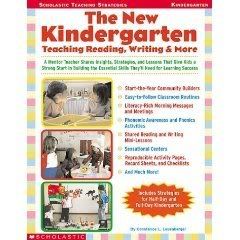
Joyful Learning in Kindergarten
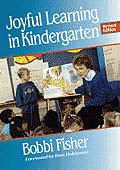
*****
Sunday, August 17, 2008
When in Rome...

...one has to *learn* what the Romans do!
After this first week at school, I've figured out a few things about myself. Surprising, because I didn't spend the past year actively asking myself questions about teaching, debating how I'd like to spend my free time, or building face-to-face collegial ties. I also didn't anticipate how my unique traveling circumstances (I'm now working with my fifth principal in my fourth school district in my third state since 2003) would affect my mood, my tone, and my attitude when I was once again hired to teach with a school staff that for the most part (other than the new hires that joined me this year) has remained the same for a while now.
My first ten years of teaching were spent in the same school, at the same grade, with roughly the same colleagues. The nurse, lead custodian and music teacher's positions changed (along with a new principal) but the rest of us were a long term team, quirks, beliefs about education and all. Teaching in a small community, any teachers who transferred in were already known to everyone, and those who left visited often. A comfort zone was created by this long term teaching commitment that I have not felt again since leaving Alaska. Comfort zones are more common for those who stay in one place longer than a year.
Easy to understand since I spent one year teaching in New Mexico, one year in Kansas, and took last year off while we were stationed in Texas. I haven't been anywhere long enough to settle into a school's routine, a staff's easy banter in the lounge, a community's familiar scenery. On this latest educational stage, many roles are the same (librarian, kindergarten team, cafeteria staff, administration, special education teachers, custodians etc.) along with some new characters (21st Century Classroom teacher, Educational Dome Theater instructor, Compass Lab facilitator), and the goals we all work toward achieving are student focused and are seemingly educationally sound. Contemplating my new environment, I'm reflecting on my own perceptions, not knowing anyone well enough yet to be able to guess with any certainty what, if anything, is running through their minds as they interact with me.
For someone with over a decade's worth of teaching experience, a person who has taught in very ethnically, religiously, geographically and socio-economically diverse locations, I've been asking what must seem like silly questions this past week, to include "What do the alarms sound like at this school?" My principal was kind enough to let us listen to short bursts of the tornado alarms, but several colleagues have looked at me like I've lost my mind when I've asked for a description of the sounds since, as hearing those alarms and dealing with them is second nature for teachers who have been here longer than a year. Alaskan schools have fire alarms. No tornado alarms. No earthquake alarms, nada. Just fire bells. In the newer schools, there are probably some computerized alarms with flashing strobes, but that's it. In the New Mexico school I worked at, there were no tornado alarms. No door alarms. No intruder-on-campus drills (I'm sure that has changed since). In my previous Kansas school, the fire bell and tornado alarm did not sound the same as they do here. Some of you have sirens, some of you have bells, some of you have "tornado watch" beeps that are different from the "tornado imminent" howls- and at least in this school, you have a new teacher who has not heard them before. Thank you for your patience, new colleagues. Hopefully you feel you have a new partner that wants to be as prepared as possible, so she's asking.
One school had designated door holders during alarms, another stressed that no kindergarten student should hold the doors because they might get trampled, or get scared and be left inside, and another school insisted that all students file through the doors pushing the bar and not looking back, trusting that the next student in line would also be facing forward, arms at the ready to push the door open as s/he walked through in a quick but orderly fashion. Cafeteria routine? In Alaska, my students ate in the classroom. In New Mexico, they ate in the cafeteria which was in an annex building right next to ours. In Kansas School Number One, the gym and cafeteria were the same place. In Alaska, children had two choices, "home lunch" or "school lunch." Same in New Mexico and Kansas School Number One. Here, my students have the following choices: entree one, entree two, peanut butter and jelly sandwich, bagel and yogurt, OR home lunch. Wow. And if you've taught kindergarten before, you know exactly how that routine goes during the first week of school: "I changed my mind, I want something else," or "I thought I had lunch but this whole lunch sack is really filled with SNACK," or "I don't have to do the lunch chart because I'm not hungry." Throw in a few "I brought home lunch but I want pizza now," or "but I drank the three juices Mom gave me and now I want milk" and you can imagine that every so often, too much of a good thing is NOT a good thing.
Routines for duties, who walks whom back, who escorts students to buses, who picks up kids from the day care, who walks, who takes attendance and lunch count (I have an aide this year), who does copies, what hours can we be in the building over the weekend, and is it the class list on yellow, the red or green paddle flags or the class list on a clipboard we use for emergencies at this school? Does the principal want composite data sheets on students' beginning-of-the-year screening assessments, copies of e-mail communication that *might* get tricky depending on how parents interpret them, and lesson plans on a weekly spread page or in daily list format? Do the staff members at this school view kindergarten teachers as teachers or glorified babysitters? Do we sit wherever we want to during staff meetings or do we sit at tables by grade level? How clique-ish are the teachers? I can't tell you how I *wish* I could do a selective brain dump on the routines and need-to-know info I've had to memorize and learn from my previous teaching locations so I can keep this new set straight! Who uses the hallway potties and when since my classroom shares a single seat girls' toilet and a single seat boys' toilet with another entire classroom (talk about bad planning that someone should have caught when looking over the blueprints!), and though handrails are available down ramps we use to get to other parts of the school, why are most teachers encouraging their students NOT to use them while walking? I know, I know. I'll "get it" this year. Time will give me the info.
Unless Uncle Sam decides to move us AGAIN.
Wednesday, August 06, 2008
A Full Teacher Work Day Tomorrow

...and you know what *that* means! No meetings, no professional development, no inservice topics to discuss. My to-do list? A full page in my notebook. But it's a small notebook. And I'll have Dear Daughter to help. We...will...plow.
Tonight I'll be making the Rolo/Pretzel/Pecan nummies, and tomorrow my house will be smelling delicious as I bake cookies, cookies, and more cookies for my colleagues' Friday treat. When you're new to the staff and can't possibly learn the names of everyone in the school, I highly recommend taking in wonderful treats. It's staff support, I tell you!

Don't tell my grade level colleagues, but I'll be making something for each of them this weekend! We are going to have a GREAT year!
*****

I need to make sure I have my "beginning of the year" kindergarten playlist loaded onto my iPod this weekend. Songs to remember? Shake My Sillies Out, The Wheels on the Bus, Five Little Monkeys, Purple People Eater, YMCA... and some Summer Solstice selections by Windham Hill for our "Brain Break" time. Can't forget Apples and Bananas (you *know* it's a cool song if Keith Urban will sing it!):
*****
Tomorrow is Show and Share Thursday (hey, I didn't forget this time!) so check back in for some updated photos of the classroom- school starts Monday, so we're in the home stretch!
Sunday, June 08, 2008
For Bev and Jess
Thursday, March 13, 2008
Show and Share Thursday: Quilts
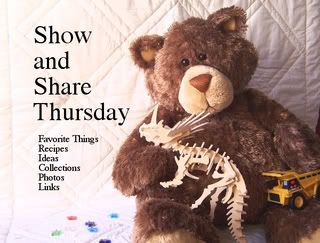
Whenever I admire and/or purchase a quilt, I'm asked if I myself, quilt. My response is always the same: "Nope, but I'm happy to support other quilters' nasty habit!" Smiles and laughter follow, and if the seller's husband is around (nope, haven't bought from a male quilter...yet!), he thanks me, then mumbles under his breath something along the lines of "great, now my wife can go buy *more* fabric, mutter mutter mutter."

Most of my quilts are wall-hanging or crib sized, easy to use as classroom or home decor.



While I do have three or four full-sized quilts, one is my favorite: the Bear Paw made for me and my husband when we married.

While in Alaska, I worked at a school that was RICH in quilters. Almost every female teacher had a fabric stash *somewhere* and every male teacher offered up his wife's sewing services when retirement or baby quilts were made for colleagues and their families. When asked what I would like from the staff as a wedding gift, I stammered, shocked that no one knew- of course, I had hoped for a quilt.

My colleagues had been my surrogate family for a decade, had helped me raise my children, had seen me through good times and bad. They'd even put my then-fiancé through a good-natured "application process" when we first started dating, since my mother had moved out of state. When Miss Mary Ann, quilter extraordinaire asked me to choose a pattern, I knew it had to be something my husband, a fan of bears, would appreciate. The Bear Paw it was. I loved pinks, my husband preferred greens. Batik was the answer. And as a special nod to my husband's appreciation for all things Harley Davidson, the lining fabric was hogs on Harleys.
Each "paw" square was done by a colleague at school, and they all managed to keep their work hidden from me, right up until our wedding day. They mounted the topper as a wall display in the hall where we held our ceremony and reception, and I saw it for the first time as I walked down the aisle.
My husband and I had no idea that we'd be relocated the following year, and the quilt has traveled with us from Alaska to New Mexico to Kansas, to Texas, and apparently, *back* to Kansas this summer. It has been draped across the foot of our bed, has been mounted on the wall for display, and during the toddler's messy stage, has been folded neatly on top of one of our shelves in our bedroom closet, easily within reach when messy fingers and drippy juice cups are out of the vicinity.
I love quilts- they're my "grown up" blankies!
Thursday, October 11, 2007
"T" is for Tools, "T" is for Technology
My students come to my classroom with vastly different prior schema. Some are used to all sorts of learning tools, Leap Pad, computers, cameras, dvr/dvd machines, mp3 players, calculators, etc., some have only seen PC's and are surprised to find Macs as a learning center in my room, and still others don't have a computer in their home, much less a dvd player.
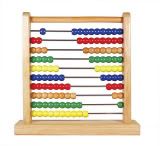
While kindergarten tends to be left out of the heavy debates regarding curriculum on inservice days, I'm still responsible for getting all of my students groomed for the first grade. When one first grade teacher is having students author short stories and use educational resources online while the other teacher merely sees computer use as a reward (and gives out "reward time" very sparingly) most of what I've tried to do gets undone before my students ever make it to the second or third grades. With each successive grade, the use of technology in education grows exponentially. Finding teachers themselves all falling within very disparate comfort levels when it comes to the technology that may be available to them and their students, I often find myself trying to anticipate other teachers' shortcomings when setting up learning centers/experiences for five and six year olds. "If **I** can give them the exposure, maybe my students won't be impacted too terribly while they tread water in the next grade." It's a horrible thought.

My classroom is for exposure, exposure, exposure, and exploration/development, exploration/development, exploration/development. So no matter the prior schema, all students can start where they need to, and go where their interests lead them. They receive gentle prodding when necessary by me, but are usually motivated to explore with their friends. I still use the overhead projector, modeling use of math tiles, coins, base ten blocks, Judy clocks, etc., but also give my students overhead transparency sheets for their artwork, so when bulletin board space doesn't allow, we can put temporary displays up and the kids feel like they are in an art gallery, their masterpieces filling the walls, larger than life!

My students use calculators, headphones and dvd players, my iMacs, and printers. Microscopes, hand lenses, thermometers, microwaves, and a tabletop laminator are used by students with extra supervision. Cash registers and "dead" phones in dramatic play, hammers and screwdrivers for creative and LOUD constructions, and musical instruments round out centers filled with paints/puzzles/puppets/ and clay in my room. There aren't many first grade classrooms that carry over learning centers like these.
I understand that the older children get, the more their "exposure" occurs thanks to being able to speak and read. And I've met some teachers who believe "Why experience it when you can read about it?" With all of the curriculum that needs to be covered and tested each year, teachers need to find ways to show students concepts in a timely manner. But when students find topics of interest and don't have the time and resources to continue to explore, learn about and experience them because teachers are reluctant to stretch their own horizons, how can we feel we are truly doing our jobs? I personally don't feel the need to be "up" on every new trend or fashion that comes out of our human expression, but I do believe that students should know HOW and WHERE to safely explore their interests, utilizing all resources available, and technology is at the heart of them.
I've realized that technology isn't a passing fad or trend, but an essential element to how we live, learn and share. If we want our diverse students to communicate, demonstrate knowledge, explore concepts and curiosities, and navigate the world as safely as possible, then we as teachers must diversify our knowledge base enough to offer our students the tools they may or may not want, choose, or be required to use, be they overhead projectors, dvd players, computers, or whatever technological innovation is waiting around the next corner.
GETTING those tools of course, is another matter.
Saturday, September 29, 2007
Colleague Care

...but until then, we'll do what we can to support each other through this interesting time.
I was raised in a family of teachers. I have rather vivid memories of not only events in my own kindergarten classroom thirty-three years ago, but of years and years and years of bulliten boards, schools, towns, school board meetings, parent teacher conferences, school carnivals, open houses and all of the other events that I accompanied my mother to or helped her with in Texas and Alaska. I did some more growing up while in college, choosing teaching as my field of study and profession. I wasn't too terribly observant of all of the educational history I was surrounded by, but a few tidbits here and there got my attention and had me thinking as I began teaching my own students. With my family, my master teacher's input and guidance during my professional year, and terrific mentor teachers as colleagues, those tidbits were sewn together, and after five years of teaching, I felt that I could reach out and invite practicum students and student teachers into my classroom.
I've made new friends and worked with new colleagues after relocating to the Lower-48, and have found these collegial relationships reflecting the fact that I have continued to grow older. No longer the newbie on the staff, nor the youngest, but not so old as to be thought of as "disenchanted" or merely "hanging out until retirement," teachers new to the profession come and ask me for input, advice, or ears to listen and shoulders to cry on when the going gets tough. Shrapnel from the CRT fiasco is still raining down on some of their shoulders and though I now live several states away, how they feel, what they think, and how they problem-solve to manage this situation and their own self-care matters to me greatly.
"Newer" teachers ask new and fresh questions and think of innovative and paradigm-shifting solutions to educational problems, but they also ask those basic questions that more experienced teachers have already moved past. More experienced teachers have been there, done that, and have moved on with their professional knowledge and development, and perhaps don't feel the need (or have the time) to share stories from their own educational histories with the colleagues that have recently graduated from college. When a former colleague expressed both hurt feelings and disappointment over teaching and posed a question on her blog about test scores, "...do they mean that a teacher isn't teaching or that a student isn't learning?" I was inspired to tell a few stories.
Ah, you're in mental-overload-mode now aren't you? That tends to happen to conscientious people such as yourself. As per our OTHER discussions, I'm not sure if the following comments will help stem the tide of professional disappointment for you or if they'll just take your mind zooming in another direction:
* Do low test scores mean that a teacher isn't teaching or that a student isn't learning? Good question. Can you answer it by putting a spin on it though: do HIGH test scores mean that a teacher IS teaching and that a student IS learning? Everyone would have you think so- teachers, administrators, board members, politicians, "experts," etc. but many of us have seen firsthand how reported test scores aren't accurate for whatever reason- a teacher's inexperience administering the assessment, a child's home life or start to that particular day, learning strengths and needs, behavioral issues, disturbances during testing, cultural or socio-economic biases... and don't forget "dumbing down" the test by making it easier so more kiddos will pass, timing the tests with the idea that smarter kids fill in bubbles faster (I still don't understand that one!) and that dreaded "no-no," fudging the scores.
I remember my friends in Barrow (an Eskimo village) years ago not understanding why they got a question "wrong" on the ITBS test. They were asked: what would be good to eat? a) a flower b) a chicken c) a whale d) a car. Now the Eskimo kids who had never SEEN a chicken but who annually helped haul bowhead whales onto the shore when the whaling captains landed "a strike" chose "C, whale." And they got it WRONG. Children who had butchered, cut up, cooked, and eaten bowhead whale had test scores that put them in whatever "needs help" category existed for the test. School experiences happened in isolation, ONLY AT SCHOOL, and "life" for the kids happened outside of school. Students were tested on subjects that were only applicable to them during the school day, not during the annual whale hunt that put food in their bellies and refrigerators.
So NCLB comes along with perhaps a Pollyanna view of reforms aimed to help those considered less fortunate... by ignoring the kids who don't "need" help because they score too high (have you seen any big push for gifted/talented kiddos lately?), making sure the average kids don't slip below their baseline, and by throwing a lot of school experiences at kids that are often only applicable to poor children when they're AT SCHOOL. And school funding is based on the kiddos who are least likely to apply school-knowledge in all aspects of their lives (usually because parents don't), so panic sets in when teachers, administrators, board members, and local politicians figure out that they are being judged on the performance of their lowest students, and they know they are NOT to fail. NCLB doesn't take care of the socio-economic issue or culture of poverty no matter what its proponents claim. The poor stay poor, but now parents, colleagues, and politicians can zing you for not doing their job.
* A lot of people are sucked into the drill that this "school reform" has created. I certainly did not get into teaching to become a revolutionary, a politician, a yeller and a screamer. Nor did I want to be a thoughtless drone, blindly following the commands of all of the "experts." I wanted to help students safely expand their knowledge and appetite for compassion and lifelong learning, and I wanted to work with colleagues who had the same goals. I hoped to be paid for doing something I LOVED, which I suppose is rather indulgent. I certainly do not love all of it now, and I've found that it is usually only with my students that I feel the most fulfilled and effective, the most "aligned" with my own personal goals for my job. What has gotten me through has been reaching out to other like-minded teachers. I was very lucky to have been raised in a family of teachers, a family of GOOD teachers. I was even more fortunate to have worked with the same group of colleagues for a decade before leaving Alaska. We were FAMILY, and while we didn't all agree, most of us felt safe in working together because of our professional mutual respect. When I moved to a new state, I was alone because of the grade I taught and the mood of my grade-level colleague. I had to do my own "professional development" because no one else talked my language. I stayed in touch with colleagues in Alaska, asked them to send me links or copies of materials they were finding useful, and bless them, they did it! I looked online, started finding websites that I could visit regularly so I could maintain some balance and not feel so isolated. When I moved to the next state and was hired, it took a lot of time to find balance between the DRAMA and the real educational issues that needed to be addressed. I had so much I felt I could share, and knew I needed and wanted others to share what they knew with me, but workplace psychology took up more time than should be allowed. So blogging, MySpace, and searching out other resources became a part-time hobby that helped my full-time teaching brain.
I encourage you to continue to reach out. Read some blogs, purposely seek out the thoughts and expressions of teachers from around the world. You won't feel so alone, you won't feel so judged, and you'll know there are a lot of other people out there on your side and on the side of your students.
I'm concerned that many first-year and newbie teachers are leaving college ready to work, ready to teach, and ready to blindly trust educational reforms, mandates, and practices that are not beneficial to students. Some of the newbies are so busy with the duck-and-dodge of their first classrooms and students that they're barely able to come up for air. Others are noticing a huge discrepancy between theory and practice now that they're out in the real world. Many, like my friends, are facing moral and ethical dilemmas as they decide whether or not to risk future tenure, letters of recommendation, and the ability to put food on their tables and clothes on their own childrens' backs by calling other more experienced teachers and administrators "out" for horrible educational practices.

Thursday, September 20, 2007
Explanations aren't Excuses

Explanations aren't excuses. Really.
The kindergarten students from last year are enjoying their time as first graders. From what I've heard, their teachers are enjoying their sparkling personalities, humor, and talents as well. Yes, oh yes, let's not forget those academic skills too: we made sure our students could count past 111 (the kindergarten standard in the district was 30), they could write their first and last names, problem solve not only mathematical problems but social situations as well, interact appropriately with teachers and classmates, and many of them were enjoying reading and sharing their thoughts through writing. They laughed, giggled, shared, observed, inquired, negotiated, apologized, encouraged, sang, took risks, re-evaluated, and grew. Unfortunately those last traits couldn't be measured by criterion referenced tests.
The remainder of this post can be found at my other blog site, "Tending the Kinder-Garden" and is now password protected. Yep, you'll have to ask for the password, and nope, I probably won't give it out to everyone. "Think it, don't say it."
Tuesday, September 11, 2007
"Them versus Us"
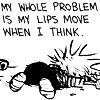 Perhaps it's a totally new concept: administrators, teachers, parents, and students all working together, as a team, in our educational system. No "them-versus-us" mentality that does nothing but create opposition, miscommunication, hurt feelings, and even underhandedness, but actual teambuilding with truly *shared* goals.
Perhaps it's a totally new concept: administrators, teachers, parents, and students all working together, as a team, in our educational system. No "them-versus-us" mentality that does nothing but create opposition, miscommunication, hurt feelings, and even underhandedness, but actual teambuilding with truly *shared* goals.I had an interview yesterday at a local elementary school. It was a school that I had taken my resume to earlier this summer. I didn't hear back from the principal until a week and a half ago, when a one-line email message popped up in my in-box: "If you're still wanting a position, call my cell this morning" with the principal's phone number as the signature. I called the cell phone, reached the principal's voice mail, and left an affirmative "yes I'm available to interview" message with my phone numbers. I received a response yesterday morning in the wee hours in the form of another one-line email message: "Can you come in for an interview at 3:30 today?" I emailed back that yes, I was looking forward to meeting the principal at three thirty, and I then inquired for which grade or position I was to be interviewing. No response. I downloaded the Texas Education Knowledge and Standards (TEKS) parent handout for grades K-5, thought about how I'd respond to the questions I anticipated being asked, and enjoyed the rest of my morning with my toddler.
I arrived at the school fifteen minutes before my interview, and was pleased to find the neighborhood parents friendly, and the staff helpful. The students were full of energy as they left for the day, and smiles abounded. All GREAT signs! I signed in at the office, and was soon joined in the waiting area by another teacher applicant also there to interview. She had no idea which grade or position was needing to be filled either, but we quickly found some mental direction when the secretary made an announcement over the intercom asking that all third grade teachers report to the principal. I quickly reviewed the TEKS handout for third grade, made sure my information packet and resume were ready to go and crinkle/crease-free, and talked with kindergarten students who were waiting to be picked up at the office. (The students were wearing AWESOME "10th Day of School" crowns, I HAD to admire them!)
The other applicant was taken to be interviewed first by the principal, who had quickly introduced himself to us as the third grade teachers congregated. After twenty minutes, I saw the first applicant quickly leaving the building looking a bit down and unsure of herself. I wondered if she had been overwhelmed by the number of people interviewing her, or was experiencing the "I-should-have-said-this" aftershock that tends to hit people after presenting themselves for consideration to a bunch of strangers. The principal came and escorted me to the interview room, and I was pleased to see four cheerful teachers waiting.
I introduced myself, and the principal asked me to tell the teachers a bit about myself before getting started with the interview questions. No doubt you've noticed, dear readers, that I'm a bit of a rambler, so once I realized I'd gotten off on a tangent, I quickly added humor to the mix, and apologized for getting off-subject. The principal expressed that he was in a hurry and that we'd need to get the questions underway, and asked the teachers to begin the interview. I was prepared to answer questions about my teaching experience, my educational background, teaching philosophy, teaching style, views on curriculum and instruction, and demonstrate familiarity with Texas and District specific issues such as the Texas State Standards, the district's testing policies regarding NCLB, and how I'd work with bi-lingual students and staff. I also figured I'd be asked about my discipline policy and questioned as to how many extra duties I'd be willing to take on.
I was asked to describe my teaching style, to detail how I'd ensure all of my students experienced success, who I thought was responsible for discipline in the school, how I communicate with parents, and how I'd treat my grade-level colleagues. Nothing else, so I worked to infuse my responses with pepperings of the other information I felt was pertinent (that wasn't being asked for), and was comfortable adding humorous examples and positive messages about working with collegial groups and teambuilding. The response from the teachers was shared laughter, nods of what I hoped was approval, and an overall relaxing of tone as the interview progressed. The response from the principal however, was nothing short of.... bristling, to include the folding of his hands, and the crossing of his arms in front of his chest.
To round out my answer to how I'd treat my colleagues, I responded that I would treat my colleagues the way I treat my students, as "whole people." I may need the E.L.L. teacher's help with some of my students, but I'll remember that when working together in my room, or on committees, or after-school projects, we ALL have families to get home to, so it's important to work effectively so that we're not living, eating, breathing and sleeping at school all the time. And hey, even if I don't get to work with everyone on the staff as much as I'd like to, I'm happy to bring cookies to the staff room once a quarter for staff support!
Lots of additional smiles, laughter, nods and "thank goodness'" from the teachers, immediatly followed by the principal indicating the interview was over saying "Well, I just feel I need to close this interview by mentioning the following. This is a DIFFERENT school. Teachers HERE give 150% and that's what makes us effective. You might want to consider that if you are hired to teach here."
Wouldn't you know it, I had a response.
"Thank you Principal ______________, I see exactly where you're coming from. Since I've taught for twelve years, been hired by three school districts, and have received glowing letters of recommendation from each one, it's obvious that I take my job very seriously and I'm good at it. But my own childrens' band concerts, volleyball games, and science fair projects are just as important as my students, so I won't be staying here until nine p.m. each evening. Teachers who sacrifice their marriages and their families to martyr themselves for their students are, in my opinion, living grossly unbalanced lives."
He thanked me for my time, stood up, and walked me to the door, at which point I gave him my resume and information packet. I'm sure they were tossed in the trashcan as soon as I walked out the door.
Something tells me I won't be teaching third grade at that school this year, which is a shame because I rather enjoyed the dynamic I experienced in my short time with the other teachers and I liked the feel of the school environment. But I had done a little homework before the interview, and found out that this was the principal's first year at this particular school, and that the school's science scores fell below the state's average, and that the school, while "academically acceptable" hadn't received public kudos or accolades for a whopping year. None of these details bothered me until experiencing the principal's reaction to my responses during the interview.
First-year principals, like first-year ANYTHINGS, are eager to prove themselves. In today's Blue Ribbon/Gold Star/Sparkley Crown School competition, and with the requirements set by NCLB, I understand that administrators, like teachers and students, are pushed to perform, and pushed to produce the results that have been labeled as "indicators of success." But meeting administrators that desire the banners, the photo ops and the publicity at the cost of the well-being of their teachers bothers me.
I'm qualified. I do a good job. As a rather simplistic job description, I'm paid to require other people to think. But I'm tired of meeting administrators who don't like the fact that I myself have opinions and am willing to share them, especially when I'm asked what they are in an interview. I don't challenge administrator's authority, nor do I disrespect their role, but I'm very clear on what I think that role is: school administrators are employed to make sure I can do MY job effectively for our students. A principal might hire me, but it's his or her job to provide safety plans, collegial group time, and various other resources for any student and/or teacher support that is necessary. Principals are guides, to help me and my colleagues achieve not just OTHER peoples' goals for our school and district, but the goals we set for ourselves and our students. Principals should be advocates not only for students, but for teachers, support staff, and other paraprofessionals whose jobs make student learning possible each day.
This "them versus us" is getting old. Am I really the only person who feels this way?
Monday, April 09, 2007
Crowns and Wands in Oz

I thought I'd preface my latest blog with an image of the bright, vibrant coloring crayons that herald the first day of kindergarten with their sharp "never used" points, exotic names that can't yet be read, and that **smell.** Crayons and brand new pencils, colorful plastic handled scissors, and glue sticks (I know better than to unleash wet glue during the first week of school) all welcome schools' newest attendees each August or September. As of this April, I've opened thirteen years' worth of crayon boxes, glue stick lids, paints, clay, and silly shaped erasers and pencil sharpeners. But now, after experiencing three different interpretations of what kindergarten is and should be in Alaska, New Mexico, and Kansas, I feel the burning urge to learn how to open up something new: a huge can of "whoopass," and so my choice of images changed.
Saturday, September 30, 2006
Everything I Needed to Know I Learned in...

Well okay, Kindergarten. Kindergarten in Texas as a child, kindergarten in Alaska, New Mexico, and now Kansas, as a teacher.
In Texas, I learned I was strong. At the age of four-and-a-half, **I** was the one who broke the pinata at Halloween. To this day, I still have the memory of being blindfolded, with a stick of some sort in my hand, hearing "hit it Mica, hit it!" Then the feeling of contact, and the sound of hard candies hitting the bare floor. "Get the candy, get the candy!" I couldn't. I was too busy holding the corner of the blindfold up away from my eyes, watching the swarm of kids at my feet grabbing for the candy I had released from the paper mache prison. I'm strong. God bless the teacher who probably held the pinata down still where I could hit it.
I endured, sometimes enjoyed, and in the end survived the next twelve years of school, and attended college hoping to be a Broadcast and Journalism major. One horribly inappropriate instructor and enough views of news reporters on television shoving microphones into the faces of families who just experienced some horror, and my mind was forever changed. Back to "what I knew," since it was easier to draw upon my life's experiences as a teacher's kid... freed me up to go out and socialize, meet people, learn the right ways, and several wrong ways of interacting with others. Ta da, six years later (darn that socializing), and I had a Bachelor's Degree in Education.
I was hired late into the school year as a kindergarten teacher. Frankly, it was the **last** grade I ever thought I'd want to teach. I cried. Yes, cried, the night before I was supposed to meet my new students. The next day, with stinging, puffy eyes, I survived my re-introduction to the kindergarten world, thanks to wonderful students, and two amazingly terrific teachers. While one would move on to a principalship in another town, the other would become not so much a mentor, but a role model (I tend to observe, think things through, try them out on my own, and gauge the result BEFORE I ask for help) and eventually, the treasured shoulders, ears, and insights of a true friend I respected not only as a teacher but a human being. She observed, fine-tuned, overhauled, and encouraged my successes, and occasionally was hit by the shrapnel resulting from my clueless lack of experience. When one of her own former student teachers was added to our kindergarten team, I had yet another wonderful teacher from whom to learn. Our colleagues, their families, and our school's neighborhood, children and all, imprinted upon me so many memories, so many opportunities to build my own opinions, so many experiences... I had no idea how they would help me when I had to leave a decade later.
Uncle Sam decided to move my husband and thus, our family, to New Mexico, where I became employed in my second school district ever. Meeting my new colleagues, my new administrators, and my new students and families was quite the experience. No matter how diverse I had thought my decade teaching in Alaska had been, it turned out there was a great big world out there! Even in my own country, attitudes, biases, prejudices, beliefs and practices vary widely. Thankfully, I had taught long enough to recognize the social and professional choreography displayed at my new school. I was able to compare and contrast differences in office procedures, school routines, social cliques, curriculum, socio-economic boundaries, school culture, teaching styles, and school-wide discipline. Some practices, not many, were aligned with my own teaching philosophy and goals. Redundancies abounded, communication never made it completely around the loop, and in a predominantly Hispanic school district, I was asked several times WHY I had number and color words on my bulletin board in English AND in Spanish. On the upswing, my class size was limited to fifteen, and my students got along wonderfully with one another. They were happy, healthy, bright, eager, and kind, and their parents were extremely supportive and helpful. I had two wonderful practicum students who were more colleagues than pupils, and was able to build fun and supportive friendships with subs and parent volunteers. An occasional tray of homemade cookies left in the lounge always garnered thanks and smiles, so there weren't too many social obstacles for me to overcome.
Now, in my third state, and my third school, I'm still teaching kindergarten. Yet again, I've had to sit back, get the "lay of the land," and learn my steps in the new choreography. As I'm able to now compare and contrast practices between three schools, districts, and states, I feel comfortable that my experiences are adding up to help me pick and choose the best of all I have observed, been given, thought up on my own, and in some cases, endured, for the benefit of my students, their families, and my colleagues. My personal and professional philosophies have four supporters at this time: my husband, my kindergarten colleague, the speech therapist, and another teacher at work. Most everyone else with whom I've interacted has been taken aback, not quite sure of what they are observing. My discipline plan, my instructional practices, my vocabulary and tone with my students (and the students of other teachers), have all been questioned by support staff, colleagues, administrators and parents. My students' parents and the four supporters listed previously, seem to be the only adults who understand why I find it necessary to build relationships with my students, to help build relationships between my students, and work as much with the social skills as the academic. Relationship-building with colleagues who possess a similar amount of teaching experience or more has been awkward. I don't FIT. How I think, what I think, and what I do, are evaluated from a distance. My perspectives on discipline, developmentally appropriate practices, support for kindergarten teachers, relationship-building, and my regard for my students' emotional safety at school during this very special year are apparently perceived as odd, not the norm, perhaps even "off by a few bubbles." To feel so outnumbered by professionals who are consumed by what they themselves want from their students instead of what they want for their students is an odd position in which to find myself.
I recently attended a districtwide grade level meeting where most of the debate and discussions revolved around how to make the S.F.A. observers happy. How to get through the entire required curriculum when students wanted to spend more time on certain activities than others. How five year olds still weren't demonstrating perfect penmanship (we're only a month and a half into the school year as of this posting), and how teachers were thrilled their schools' "academic support" staff were allowed to take children into a back room of the building, and "put the fear of God into them" when they wouldn't comply. I was appalled, not only as a teacher, but as a mother. Only a small handful of teachers volunteered suggestions to help with curriculum issues, and our time at the meeting was limited to an hour. Feedback was requested which my grade level partner and I gladly provided, but I left the meeting feeling so outnumbered, and therefore not nearly as open to helping my fellow kindergarten teachers. While I have been providing feedback and hopefully supportive shoulders and ears like my very first role model did, I can't help but feel that without a public and high-enough-on-the-food-chain supporter and advocate, my hands are tied, and frankly, my philosophy is not a good match for this district.
Don't yell. Don't hurt peoples' feelings. Don't hit. Say "please" and "thank you." Eat a snack. Take a nap. Share. Walk with scissors. Don't eat glue. Remember to write your name on your paper, and share your books. Help your friends, smile at your teacher, at least be polite if you can't be nice. Life lessons taught in kindergarten don't often carry over into adulthood. And it's a shame. It's an even bigger shame when they don't carry over to the very people trusted to provide educational and emotional support to children for twelve or thirteen years.
We accommodate students, not the BRAND of the curriculum materials. Not the S.F.A. saleswoman or product support staff who come in and "spot observe" several times a year. I would never consider a doctor, lawyer, or mechanic truly qualified if they only came in to see me on their own schedule, on dates they chose as best for themselves. If they only did a looksie at my car without ever looking under the hood, smiled at me but didn't take my blood pressure and vitals, or only asked if I had a will or not, I wouldn't find them very helpful. Observers who only come in to see if each cutely named activity is being performed at the exact minute of the prescribed schedule... or to see if a poster is hung at the appropriate spot in my classroom , are completely missing out on what they should be there to observe: My students. Learning.
Other issues have had my attention in previous blog postings, and taking them into consideration with my latest observations, it's clear I have to go back to what I learned in kindergarten that October, thirty-two years ago: I'm strong. It's time to find a Master's Degree program, and then a Doctoral Program after that. Perhaps when I have enough letters of the alphabet after my name, my ideas won't seem alien, they'll seem revolutionary. And worth some contemplation and adoption.
Saturday, September 09, 2006
Catch a CLUE about Kindergartners

There are as many different perspectives as there are people and animals in the world, right?
Which makes what I've been pondering for the past few years frustrating: how do people (leaving other animals out of the equation for the time being) reach agreement on "big issues" so that we can best function and work toward a common goal? Let's use education and teaching for this examination.
There are at least twelve different grade levels in the public school system. There are different developmental stages that most humans experience (and observe others working their way through) over the course of a lifetime. Most teachers and other adults acknowledge and generally comprehend which differences exist between a kindergarten student and a fifth grader, between a second grader, and an eighth grader, between a seventh grader and a senior in high school, thanks to Vygotsky, Piaget, heck, even Freud and the college professors who introduced many of us to their findings and assertions! Curriculum materials, social scripts, vocabulary are all supposed to be geared in an appropriate way for each age group or grade, and there **are** differences to be found in all of the materials offered up to students in grades very near to one another. First graders build upon skills learned in kindergarten, second graders build upon skills developed in the first grade and kindergarten before that, etc.
But many teachers, administrators, parents, and politicians tend to blur the lines when it comes to what they (teachers et al.) want from and expect of children. Students are now expected to reach A.Y.P. no matter their age or grade. To quote a former student of mine, "Teacher, how come the principal keeps telling me about L-M-N-O-P?" Yes. "L-M-N-O-P." The response that popped into my head was "Because Honey, the principal has no clue what kindergarten students think, see, or feel, because if she did, she wouldn't be wasting your time with fifty dollar words and abbreviations that make no sense and are of no relevance to how you perceive your school experiences." No, I didn't say it. I had some other, more developmentally appropriate answer for her that 1) reassured her that she wasn't in trouble and that she'd understand when she was older (because yes, she appeared concerned that she had upset the principal) and 2) kept me from jeopardizing a nice letter of recommendation for future use.
Number crunched data obtained from students in abnormal testing situations once per year (or MUCH more often!), or obtained from a computer program that cannot and does not take a student's personality, needs, quirks and feelings into consideration are considered very accurate and reliable indicators of who and what those students are. Of what they are capable, of what they "need" in order to make L-M-N-O-P. So tests and computers are the most utilized "tools" in schools now. And all children, regardless of age or grade, are expected to use them efficiently and accurately, as well as operate within the school's own set of rules and expectations. "Accomplish NOW." "A magic sprinkling of perfect-walking, perfect lining-up, perfectly-quiet-in-the-hallways, perfect potty-flushing, perfect indoor-voices, perfect test-taking, perfect social-skills" dust has been dumped on your heads as you walked in the door. No matter your age, your previous life experiences (or lack thereof, after all, some of you are only five years old), your cultural background, your socio-economic status, or your gender, you WILL be PERFECT. Because I said so. And if you're not, I get to yell. A lot. Or blow a whistle at you. Or berate you and your teacher for not making sure that you behave PERFECTLY. Oh, and hey, YOU obviously didn't try hard enough, and neither did your parents because YOU are part of the sub-group that made US fail to meet L-M-N-O-P." No pressure. And don't you find the message oh-so-appropriate for children of all ages?
This type of message wouldn't work for any adult in any workplace- in fact, it would be considered abusive. A lot of employees would quit, transfer, or, if forced to stay in the job by financial need, would do the bare minimum each day and dread every moment he or she had to spend on site. How do people in the arena of public education, those guides for our children, allow who and what children ARE to be replaced by percentages and data sheets? Relationship building, once so important, and necessary for helping keep students IN SCHOOL and keeping parents and families involved, has been thrown by the wayside. So in walks the discrepancy that has been frustrating me for a while now and that makes me wish I could say the following things in the following situations:
"Excuse me, but your students aren't displaying appropriate audience behavior."
Response: Thank you for noticing. Appropriate audience behavior is a skill that needs to be practiced and developed over time. Obviously my students have not had such practice before coming to my class this year. Have you noticed how eager they are? Behaving as all NORMAL children do when thrust into a new situation? They're looking, they're expressing themselves verbally, they're stimulated by all of the new faces, sounds, the decor, and it's all hitting them like a freightrain. And somehow you expect them to sit quietly, eyes forward, and participate in choral responses they've never heard before. Hmmmmm...... we'll be WORKING ON IT.
"Your student wouldn't answer me! So I told him/her that I was going to talk to his/her teacher and we'd get this straightened out because I expect all students to respond to me appropriately and follow our school rules!"
Response: Thank you for bringing me your concern. And please, let me tell you what realm kindergarten students are in when they see an adult, who is a stranger, coming down on them like a ton of bricks.
1) If the child is from a large family, where using loud voices is probably the only way he or she is heard.... or where parents have to use loud voices to get the child's attention because of the mayhem in the house... that child is going to NOT HEAR YOU, **OR** WILL TUNE YOU OUT JUST LIKE HE/SHE DOES TO HIS/HER PARENTS. It's not a conspiracy. I promise. Most five year olds don't wake up each morning thinking "Oh yeah, I think I'll mess with the third grade teacher today- she thinks she's got authority over me, but when that bell rings at recess, I'll show her who's the MAN." Stop taking it so personally. As much as you hate it, you're not that important a person to my students. Why not? Because **I** am. Most parents and adults who deal with young children understand that kindergarten students still occupy their own universes. Learning to share resources, toys, and a teacher's attention requires each child's acceptance that he or she is no longer the king or queen of his or her domain. Yep, it's a real "stage." Developmental even. **I'm** lucky to have been given permission to wear the crown! As a result, I too, live in the ME-ME-ME world: My students will respond to ME. They will watch ME for my signals, for my facial expressions, and will work primarily toward obtaining my acceptance. See, it's really MY world (wink!)! Put down your whistle, take a deep breath, count to ten. Eat some chocolate.
2) If the child has never experienced some stranger (yes, YOU, even if you wear a name-badge, even if you walk in the same hallways that we do each day- you're a STRANGER) telling him/her what to do, demanding behavior of him/her, and forcing a consequence on him/her for behavior and skills still being learned and fine-tuned, the child will be scared. Terrified in some cases. Which is apparently what many teachers are hoping for. They want to scare children into "behaving." Most kindergarten students will not be scared into "behaving." They will be scared of YOU. They will be scared of school. And they will dread the thought that if they're "good at school" and finish kindergarten, first, second, or whatever grade, they get YOU as their next teacher. Nice going. Way to get those kids happy, involved, eager to please, and performing optimally for your L-M-N-O-P. Oh and by the way, you turn me into their defender, instead of their guide and teacher. Thanks so much for building an aura of fear into a place where children are a captive audience for at least twelve years. I'm sure they'll want to fulfill your expections (and become healthy, productive, life-long-learners) just the way you want. Yes, that would be sarcasm.
3) By the way, would you EVER let another person speak to you the same way you spoke to and about my student? Yes? Then get a spine and the voice to back it up. If you wouldn't, then why on Earth would you ever consider speaking that way to a child who lacks the emotional coping skills to deal with what you are saying and how you are acting? Hellooooooooo, McFly! How would you feel if a teacher spoke that way to your child? Your niece or nephew? Your grandchild? If it wouldn't be okay for them, it's NOT okay for anyone else (hello Golden Rule!), whether you're in a grumpy mood or not. Oh and by the way, if it WOULD be okay for your child or any of your other relatives? Your parenting skills aren't the only ones out there. Some parents will NOT appreciate your approach. And they would be correct. And yes, you'll have to respect their input and directives when they correct you, even though you won't agree with it. And you'll have to compromise. You're a grown up. Do it.
4) Were you aware that there's a great big world out there? Full of different cultures, different languages, different abilities and disabilities? As you raise your voice with my students, I hope you remember that yes, to some, you really ARE speaking Greek! To others, you're moving your facial muscles in a really interesting pattern, because hey, they can't hear you. For some of my culturally diverse students, your insistence that they look you in the eye, or refrain from moving backward as you invade their personal space is considered MISBEHAVIOR in their homes. And no, being five year olds, they're not used to discriminating between home, family, and school yet, though I can guarantee that they're certainly developing a strong bias against YOU. Ever heard of ADD? Autism? Auditory or visual difficulties? How about speech and language delays? Learning disabilities? Of course you have. Now, tie into your professional knowledge the following reminder: my students are only five years old. Not thirteen, not twenty-three. Not forty-five. FIVE. They do not, and will not have the skills to self-moniter or self-accomodate in order to address whatever their individual needs might be. Right now, they're still trying to remember that it's okay to leave the blocks center to use the bathroom in enough time to prevent an "accident."
5) You are a role model. And you're modeling horrible behavior. You've just taught my students that grown ups tattle after throwing their own hissy fits. You want my students to "know" you're "right." Well, you've taught my students that you will threaten them, and no, they won't think you're "right" to do it. Because little kid logic is an element in and of its' own. You want a kindergartner to think like you? To walk around in your shoes? Dream on Baby. YOU need to get down on your knees and crawl around in the classroom, the hallways, and on the playground, not because I'm trying to make you submissive or punish you, but because you need to see the world through a five year old's eyes. And remember, you're still probably half a head taller than my students when you are on your knees. You have a lifetime of experiences and coping skills (kind of) that they don't. That they won't for years to come. Who knew the ceiling was really that high? Who knew the teachers were really that frighteningly tall? Who knew the water fountain was so hard to operate with such tiny hands? Who knew how hard the walls were when older and bigger students pushed you into them? My students will not learn how to put themselves in the shoes of their friends, their teachers, or anyone else in two weeks' time. Get used to it. And by the way, put yourself in their shoes. Regularly. You'll be a better teacher and person if you do.
I belong to a profession whose members can't make up their collective minds HOW to "be" with students. With children. These are smart, highly educated adults, professionals. Who read the journals. Who read the articles. Who attend the inservices. Who share the books and recommend educational authors. Who have forgotten that the children they serve are human beings, and not numbers to crunch. Who have themselves, broken every appropriate rule when it comes to building trust, encouraging imagination, and helping the whole child and their families, emotions and all. Who then look at children today and say "I remember when students were well behaved. I remember when kindergarten students knew the rules. I remember when...." all the time.
Here's a hint to educational old timers, teachers, administrators, politicians and parents alike: When you start saying "I remember when" phrases with negative follow ups about your students and mine every day, it's time for you to quit. You've lost the big picture, you're burnt out, and you, yes, you, are doing more harm than good. You're not a failure, you're just DONE with this part. Time to regroup. Move on. Solve the problem, shift the paradigm. You know, the way you expect all children to be able to do. Right now.
And of course, most of you won't quit. You need your retirement. You need your paycheck and it's too difficult to "start over" again. Or, you're too lazy. Hmmmm.... now you've taught the kids that it's okay to do a bad job. To settle. To hurt others because of your own lack of initiative. And you wonder why children behave the way they do. I think the kids have gotten the message loud and clear, and frankly, I'd appreciate it if you'd keep your mixed messages to yourself. Please stay out of my room, stay out my students' faces, and let me, and my kids, do our jobs. Safely. Emotionally and physically. Effectively. On an appropriate timeline, not your ridiculous one-size-fits-no-one model. If you'd like some recommended titles or authors to help you reconnect with the mindset of young children so that you can return to your days as an effective and respected teacher, let me know. But stop with the bullhorns and barking. I for one, am NOT scared. I for one, know better. I know the truth and the bottom line. And it's not "A.Y.P."
It's "L-M-N-O-P."

